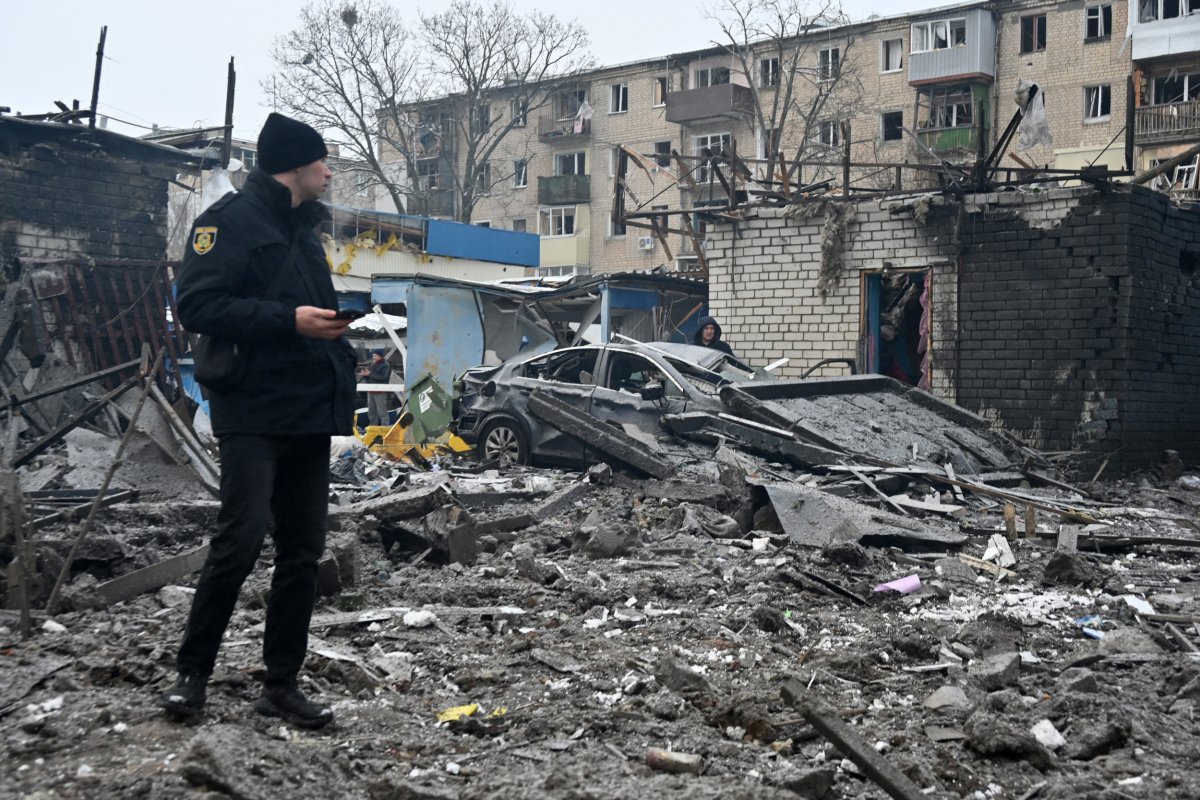A Russian rocket scientist and employee of the country's top arms manufacturer has taken his own life after a missile he helped produce killed his grandmother in Ukraine's northeastern Kharkiv region, according to local reports.
Anton Horobets, an engineer at the Russian defense plant Almaz-Antey, wrote in a suicide note that "a few days ago, a missile I had a hand in, flew into Kharkiv, into the house where my grandmother lived," numerous local Telegram channels reported, publishing an image of the alleged note. The Kremlin hasn't commented on the reports. Newsweek couldn't independently verify the authenticity of the note and has contacted Russia's Defense Ministry for comment by email.
Moscow has ramped up its attacks on Ukraine in recent weeks. On December 29, 2023, Russian President Vladimir Putin's forces launched what has been described as the largest aerial attack of the Ukraine war. At least 30 civilians were killed in that attack and 144 others were wounded. Ukrainian officials said a maternity hospital, schools and residential apartments were targeted in the strikes.
Horobets allegedly wrote in his note that he "cannot live with this, what is happening is horror and a nightmare," and added that he refuses to "participate in [Russia's full-scale invasion of Ukraine] anymore."
The Almaz-Antey military plant has been described by Russia's state-run news agency Tass as the country's top arms manufacturer. It specializes in air-defense products, such as radars, airspace surveillance systems, surface-to-air missiles, guidance systems, and automated control systems, according to website Military Today.
Russia's Defense Minister Sergei Shoigu routinely visits the arms manufacturer. In June 2023, he paid a visit to conduct an inspection of workshops producing advanced guided air-defense missiles for air-defense systems, for use in the war in Ukraine, Tass reported.

On January 23, Russia launched a barrage of missile strikes on Kharkiv, which killed 11 people and injured more than 60 others. Two women were killed after a residential building was struck. There were also strikes on Ukraine's capital, Kyiv, as well as in central Ukraine and the southern Kherson region.
Ukrainian President Volodymyr Zelensky said on January 23 that Russia had launched nearly 40 different types of missiles in "another combined strike to try to circumvent our air defense system."
There were many deaths in "an ordinary high-rise apartment building. Ordinary people lived there," Zelensky said.
Russia's Defense Ministry said last June, after Shoigu's visit, that a representative of the Almaz-Antey facility told the minister that production capacities would be expanded to double the production of air-defense systems.
"The director general of the enterprise reported to the Russian defense minister about the implementation of programs to expand production capacities to provide Russian troops with modern air defense systems," the defense ministry said.
The representative added that "the creation of new production capacities will allow the enterprise to double its capacity," according to the defense ministry.
If you or someone you know is considering suicide, please contact the 988 Suicide and Crisis Lifeline by dialing 988, text "988" to the Crisis Text Line at 741741 or go to 988lifeline.org.
Do you have a tip on a world news story that Newsweek should be covering? Do you have a question about the Russia-Ukraine war? Let us know via worldnews@newsweek.com.
Uncommon Knowledge
Newsweek is committed to challenging conventional wisdom and finding connections in the search for common ground.
Newsweek is committed to challenging conventional wisdom and finding connections in the search for common ground.
About the writer
Isabel van Brugen is a Newsweek Reporter based in Kuala Lumpur. Her focus is reporting on the Russia-Ukraine war. Isabel ... Read more
To read how Newsweek uses AI as a newsroom tool, Click here.








